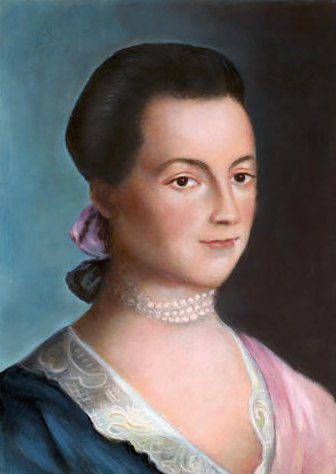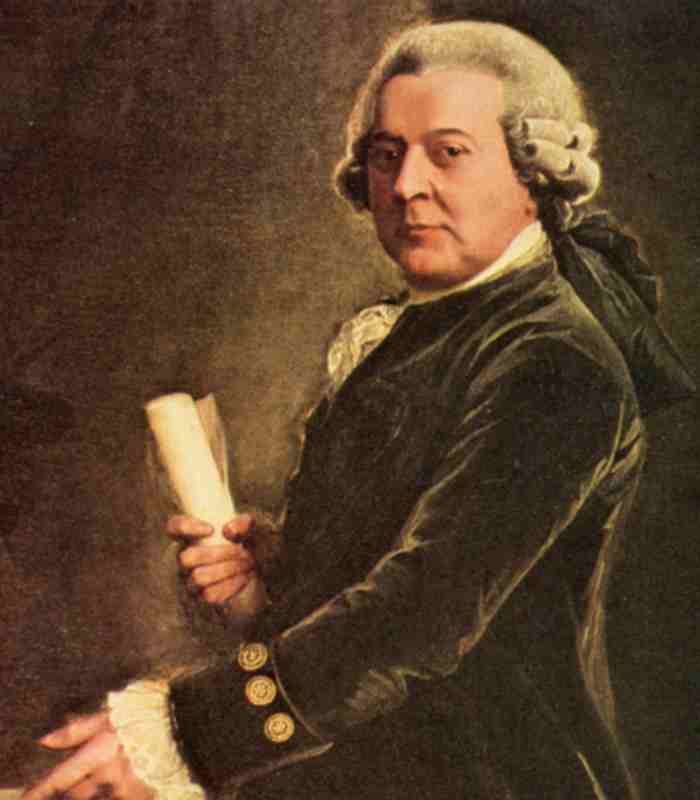In the spring of 1776 the question of women's rights erupted into the correspondence of husband and wife, Abigail and John Adams. While John's letters to his wife that spring describe the urgent business being conducted in a Congress preparing for independence, Abigail's letters, written when Boston was suffering the trials of war, circulate stoical notions of the need for all to subordinate domestic pleasures to their duty to the emerging American republics. But, her hopes for a new era of national independence led her to formulate her plea that a new code of laws be instituted that will "remember the Ladies" by winning them the just and equal treatment that they had not receive under British law.
This exchange is justly celebrated for its cogency and wit. Those writing from the 21st century can see that Abigail's plea, which is so easily set aside by John, is prescient. Abigail's letter to her dear friend, the Whig historian Mercy Otis Warren, offers a full account of the exchange with John and this summary shows that Abigail is NOT mollified by his cagey rejoinder. (April 27, 1776, Adams 1963, I:397-398) The issues raised by Abigail were developed by Mary Wollstonecaft in Britain and by the movement for women's sufferage in the 19th century. But while we tend to side with Abigail in this exchange, we should consider if John Adams may not have been right about the political imperatives he describes. That is, at a moment when Congress is striving to unite all in the movement toward independence, it may have been true that any special pleading would have been fatal to the movement toward independence.
|
 |
On March 31, 1776, Abigail Adams, wrote these words to her husband John who was serving at Congress in Philadelphia:
“I long to hear that you have declared an independancy[sic]--and, by the way in the new Code of Laws which I suppose it will be necessary for you to make, I desire you would Remember the Ladies and be more generous and favourable to them than your ancestors. Do not put such unlimited power into the hands of Husbands. Remember all Men would be tyrants if they could. If perticular[sic] care and attention is not paid to the Laidies[sic] we are determined to foment a Rebelion, and will not hold ourselves bound by any Laws in which we have no voice, or Representation.
That your Sex are Naturally Tyrannical is a Truth so thoroughly established as to admit of no dispute, but such of you as wish to be happy willingly give up the harsh title of Master for the more tender and endearing one of Friend. Why then, not put it out of the power of the vicious and the Lawless to use us with cruelty and indignity with impunity. Men of Sense in all Ages abhor those customs which treat us only as the vassals of your Sex. Regard us as Beings placed by providence under your protection and in imitation of the Sureem Being make use of that power only for our happiness.” (March 31st, 1776, Adams 1963, I:370) |
 |
On April 14, 1776, John Adams replied:
“As to your extraordinary Code of Laws, I cannot but laugh. We have been told that our Struggle has loosened the bands of Government every where. That Chirlren and Apprentices were disobedient—that schools and Colledges were grown turbulent—that Indians slighted their Guardians and Negroes grew insolent to their Masters. But your Letter was the first Intimation that another Tribe more numerous and powerfull than all the rest were grown discontented. –This is rather too coarse a Compliment but you are so saucy, I won’t blot it out.
Depend upon it, We know better than to repeal our Masculine systems. Altho they are in full Force, you know they are little more than Theory. We dare not exert our Power in its full Latitude. We obliged to go fair, and softly, and in Practice you know We are the subjects. We have only the Name of Master, and rather than give up this, which would compleatly subject Us to the Despotism of the Peticoat, I hope General Washington, and all our brave Heroes would fight.” (April 14, 1776, Adams 1963, I:382) |
|

![Protocols of Liberty: Communication, Innovation, and teh American Revolution [Book Banner from Title Page Image]](Images/William_Warner/Protocols_of_Liberty_Illustrations/Protocols of Liberty - Title Banner.png)


![Protocols of Liberty: Communication, Innovation, and teh American Revolution [Book Banner from Title Page Image]](Images/William_Warner/Protocols_of_Liberty_Illustrations/Protocols of Liberty - Title Banner.png)
